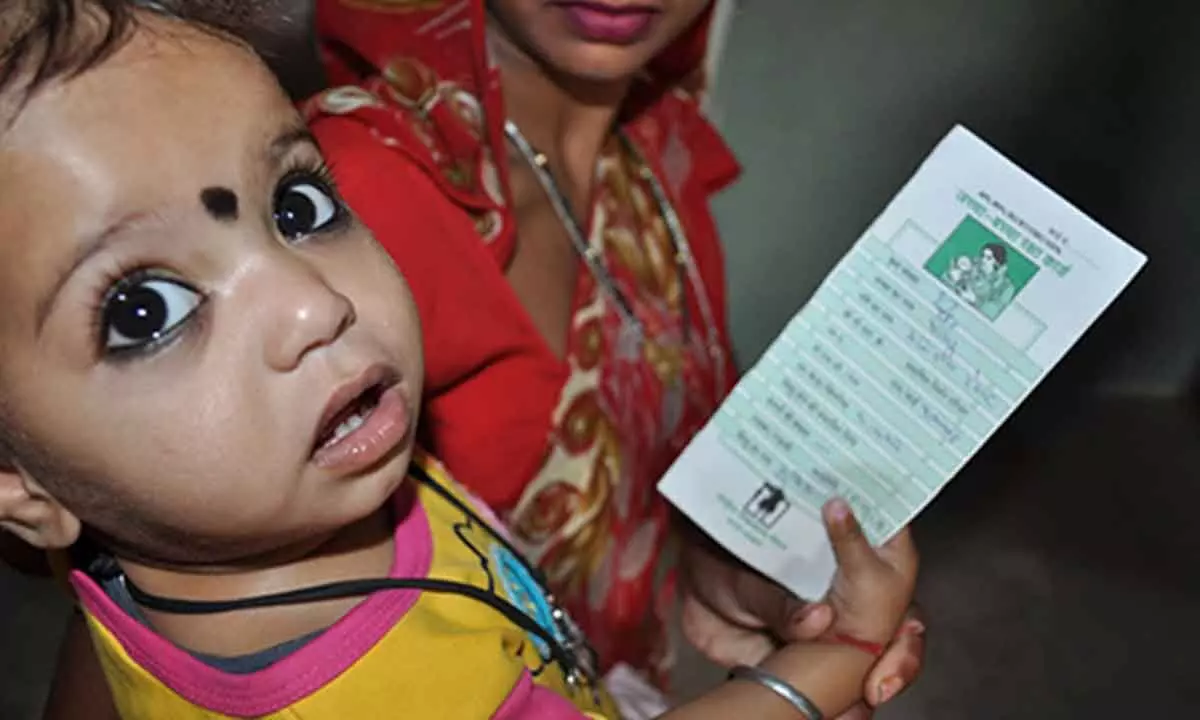Measles Outbreaks Escalate Despite COVID-19 Focus: A Nudge for Public Health Awareness
A child holding his vaccination card at a health facility in Rajasthan, India. Credit: Steve Stewart, CDC.

In the wake of a worrying resurgence of measles, both locally in India and globally in other Middle Eastern countries, urgent calls for action reverberate through public health circles. Measles, a highly contagious viral airborne disease, poses significant risks, especially to vulnerable populations such as children under five years old. Recent outbreaks have underscored the critical need for proactive measures to contain the spread and prevent further fatalities.
As the global community grapples with the resurgence of measles, Laharika Katamoni, a former researcher at Johns Hopkins University, has stepped forward to advocate for the potential use of alternative antiviral medications in combating the disease. With India ranking fourth in the global chart of measles cases, Laharika's insights come at a critical juncture in the fight against this highly contagious viral illness. In a statement, Laharika emphasized the critical necessity for effective treatment options in light of the escalating measles cases worldwide. "Given the recurrent nature of measles outbreaks globally, exacerbated by issues such as inadequate vaccination programs and the circulation of various viral strains, we had conducted a study on rhesus macaques to assess the effectiveness of remdesivir in both post-exposure prophylaxis and treatment of measles," she clarified.
According to data from the Centers for Disease Control and Prevention (CDC) and the World Health Organization (WHO), the resurgence of measles can be attributed to various factors, including disruptions in vaccination and surveillance efforts due to the COVID-19 pandemic. The suspension of immunization services and declines in vaccination rates have left millions of children vulnerable to preventable diseases like measles. India, in particular, has witnessed a substantial increase in measles cases, ranking among the top countries with outbreaks. The country reported over 12,000 cases between July and December 2023, reflecting the alarming scale of the resurgence. Factors such as missed vaccinations and the rapid transmission of the measles virus have contributed to the outbreak's severity.
The study conducted at Johns Hopkins has garnered significant attention for its potential implications in addressing measles resurgence. By examining the efficacy of remdesivir in both preventing infection after exposure and treating active cases of measles, the research offers promising insights into combating the disease. However, concerted efforts are required to translate these findings into tangible interventions that can curb the spread of the disease. International collaboration and solidarity are paramount in addressing the resurgence of measles and safeguarding global health security.
As India endeavors to contain the measles outbreak, the implications of this research extend well beyond its borders. States and nations worldwide must heed this warning, recognizing the looming threat posed by infectious diseases such as measles. “Despite the overshadowing presence of COVID-19 in global discourse, the resurgence of measles serves as a stark reminder that other viruses can also pose substantial public health risks,” said Laharika.
To fortify defenses against future outbreaks, governments, healthcare systems, and individuals must ensure broad vaccination coverage, deploy effective surveillance, and embrace preventive strategies. The resurgence of measles in India emphasizes the need for a comprehensive approach to global health security amidst the ongoing battle against COVID-19. Staying vigilant, taking proactive measures, and fostering national solidarity are crucial. Laharika stressed the necessity to strengthen surveillance to detect and respond promptly stating, “it is imperative that we learn from past experiences, bolster our defenses, and adopt a comprehensive approach to disease prevention and control.” Through collective action, we should try to mitigate measles outbreaks and safeguard global health.


